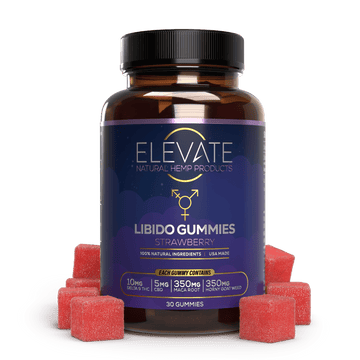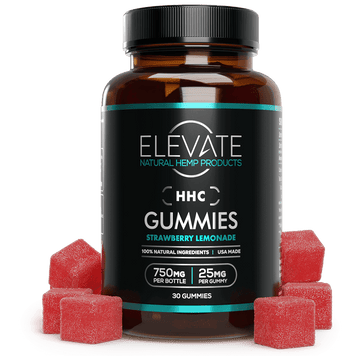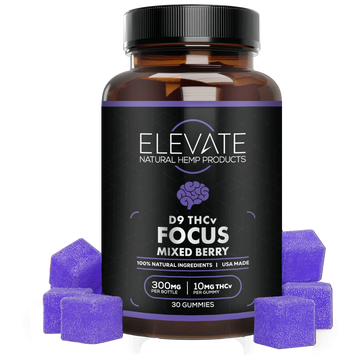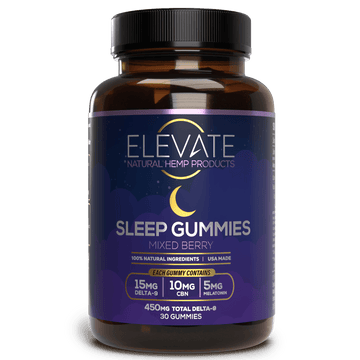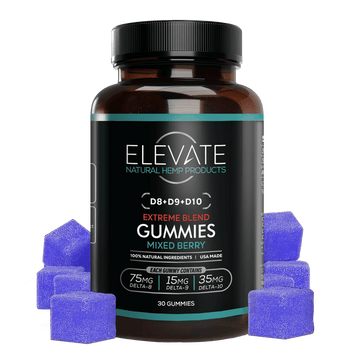Delta-8 THC Effects: Benefits, Risks, and How It Works

Delta 8 Effects:
- Benefits: Relaxation, mild euphoria, reduced anxiety, pain relief, improved sleep
- Risks: Dry mouth, red eyes, impaired coordination, drowsiness
- Milder than Delta 9 with clearer mental effects
- Effects onset in 5-15 minutes (vaping) or 1-2 hours (edibles)
Table of Contents
- So, What Exactly Is HHC?
- What Are the Potential Perks of HHC?
- Settling an Upset Stomach
- How Is HHC Actually Made?
- Creating Different HHC Products
- Now, What About Delta-8 THC?
- Exploring the Effects of Delta-8 THC
- What Are the Potential Downsides of Delta-8?
- A Closer Look at Delta-8 Safety and Regulation
- Is Delta-8 Legal Where You Live?
- How to Approach Delta-8 with Care
- The Process: How Delta-8 Is Made
- Frequently Asked Questions
- Key Takeaways
- Related Articles
Let's clear up the confusion between HHC and Delta-8 THC. You've probably seen both pop up, and it's easy to wonder what the real difference is. While both offer unique experiences, they come from different chemical starting points. This small distinction changes everything, from their legal status to how they feel. We'll break down what sets them apart, focusing on the famously smooth and manageable Delta-8 THC effects so you can understand exactly what each one brings to the table.
This blog post delves into the distinctions between HHC and Delta 8, offering clarity for enthusiasts and newcomers alike, aiming to understand their options better in the world of cannabis alternatives. We’ll break down their chemical nature, effects, legal considerations, and user experiences to help you grasp the subtleties of these intriguing compounds.
So, What Exactly Is HHC?
Hexahydrocannabinol, commonly known as HHC, is a hydrogenated form of THC derived from the hemp plant. This modification in its chemical structure makes HHC more stable and resistant to oxidation, potentially prolonging its shelf life. Although similar to THC, HHC is noted for producing milder psychoactive effects.
It interacts with the body’s endocannabinoid system but is thought to bind differently to cannabinoid receptors, which may explain the variance in its effects. Available in various forms such as vapes, edibles, and oils, HHC is gaining popularity among users seeking alternatives within the legal landscape of cannabinoids.
What Are the Potential Perks of HHC?
HHC (Hexahydrocannabinol) is a relatively new cannabinoid on the market, but research suggests potential health benefits that could be of interest. Here are some of the prospective health advantages based on preliminary findings and anecdotal evidence:
Easing Everyday Aches and Pains
Like other cannabinoids, HHC has been reported to help alleviate chronic pain, possibly by interacting with pain receptors in the body or reducing inflammation.
Calming Inflammation in the Body
HHC may possess anti-inflammatory effects, making it a candidate for treating conditions associated with inflammation, such as arthritis or swelling.
Finding a Sense of Calm
Some users report that HHC helps reduce anxiety, providing a calming effect without the intensity of traditional THC.
For a More Restful Night's Sleep
The calming effects of HHC might also aid in improving sleep patterns, helping individuals who struggle with insomnia or disrupted sleep cycles.
Settling an Upset Stomach
There is anecdotal evidence that HHC can help manage nausea and vomiting, particularly in patients undergoing treatments like chemotherapy.
How Is HHC Actually Made?
HHC is prepared through a chemical process known as hydrogenation, which is similar to the method used to convert vegetable oil into margarine. Here’s a basic overview of how HHC is typically produced:
It All Starts with the Source Plant
HHC is derived from hemp. Manufacturers start with either CBD (cannabidiol) or Delta-9 THC as the base compound. CBD is more commonly used due to its legal status and abundance in hemp industry.
The Key Step: Hydrogenation
The source compound (CBD or THC) undergoes hydrogenation. In this chemical reaction, hydrogen molecules are added to the compound’s structure. This process involves using a catalyst, typically a metal such as palladium or nickel, under high pressure and temperature conditions.
Converting to the Final Compound
The addition of hydrogen atoms changes the molecular structure of the cannabinoid, making it more stable and less susceptible to degradation from heat and UV light. This transformation results in Hexahydrocannabinol (HHC).
Ensuring It's Pure and Clean
After hydrogenation, the resultant mixture contains HHC along with other byproducts. It undergoes further processing, including purification and separation techniques, to isolate the HHC and ensure it is free from impurities and residual solvents.
Creating Different HHC Products
The purified HHC is then formulated into various products such as vapes, edibles, and oils, making it ready for consumer use.
Now, What About Delta-8 THC?
Delta 8 THC (Delta-8-tetrahydrocannabinol) is a minor cannabinoid found naturally in cannabis plants, but it occurs in very small amounts. It is chemically similar to Delta 9 THC, the most well-known form of tetrahydrocannabinol, with a slight difference in the placement of a double bond on its carbon chain.
This small structural shift results in a less potent psychoactive effect compared to Delta 9 THC. Delta 8 THC is known for providing a clearer high with reduced anxiety and less sedative effects, making it appealing for those who want the benefits of cannabinoids without the intense euphoria associated with Delta 9 THC.
The Chemical Difference: Delta-8 vs. Delta-9
You can think of Delta-8 and Delta-9 THC as close relatives in the cannabinoid family. They share an almost identical chemical structure, with just one tiny difference in where a specific double bond is located on their carbon chain. It might sound like a minor detail from a high school chemistry class, but this small structural shift is a big deal. It’s the very reason why Delta-8 interacts with your body’s endocannabinoid system differently than Delta-9. This distinction leads to a less intense psychoactive experience, which is why many people find Delta-8 to be a more approachable option. It’s often described as Delta-9’s “nicer younger sibling” because it offers many of the same benefits with a gentler touch.
Why It's Known as "Marijuana Lite"
Because of its milder nature, Delta-8 has earned nicknames like “marijuana lite” or “diet weed.” It provides a much smoother, clearer high that allows you to stay functional and focused. Users often report feeling relaxed, euphoric, and free from pain without the overwhelming intensity that can sometimes come with Delta-9. In fact, one survey found that most people experienced significant relaxation and euphoria. A huge plus for many is that Delta-8 is less likely to trigger anxiety or paranoia, making it a great choice if you’re sensitive to traditional THC. If you're looking for a gentle way to unwind or find your chill, products like Delta 8 gummies can offer that perfect middle ground of calm and clarity.
Exploring the Effects of Delta-8 THC
Delta 8 THC, a cannabinoid known for its unique psychoactive properties, also presents several potential health benefits. Here’s a summary of these potential benefits:
Taking the Edge Off Anxiety
Delta 8 THC is often cited for its ability to reduce anxiety without the intense psychoactive effects associated with Delta 9 THC. It’s believed to promote a sense of calm and well-being.
A Gentler Approach to Pain Relief
Similar to other cannabinoids, Delta 8 can interact with the body’s endocannabinoid system to potentially alleviate chronic pain, particularly due to its anti-inflammatory properties.
Supporting Long-Term Brain Health
Early research suggests that Delta 8 THC could have neuroprotective properties. It may help to produce acetylcholine, a neurotransmitter that is important for cognition, memory, arousal, and neuroplasticity.
Bringing Back Your Appetite
Delta 8 THC has been observed to stimulate appetite, making it potentially useful for those looking to increase their food intake, such as individuals undergoing chemotherapy.
Quieting That Queasy Feeling
There is evidence to suggest that Delta 8 THC can help reduce nausea and vomiting, particularly in oncology patients undergoing treatments that often lead to severe nausea.
Helping You Drift Off to Sleep
Due to its milder psychoactive effects, Delta 8 THC may help users achieve better sleep quality by reducing anxiety and pain, common culprits of sleep disturbances.
What Are the Potential Downsides of Delta-8?
While Delta-8 offers a milder experience than its more famous cousin, Delta-9, it's important to go in with a full picture. Like any cannabinoid, it can have different effects on different people, and being aware of the potential downsides helps you make an informed choice. The conversation around Delta-8 is still evolving, especially regarding its long-term effects and regulation, so knowing what to look out for is key to a positive and safe experience. Let's walk through some of the reported side effects and what the science says—and doesn't say—about using Delta-8 over time.
Reported Side Effects to Be Aware Of
Just because Delta-8 is less potent doesn't mean it's without side effects. Some individuals have reported experiencing short-term issues that are good to know about before you try it. According to reports cited by WebMD, these can include feelings of confusion, anxiety, and dizziness. Physical effects might involve changes in heart rate, low blood pressure, and in some cases, vomiting. It’s a reminder that everyone's body chemistry is unique, and what feels like a gentle lift for one person might be an uncomfortable experience for another. Starting with a very small dose is the best way to see how you'll react.
What We Don't Know: Long-Term Health
One of the biggest question marks surrounding Delta-8 is its long-term impact. Because it's a relatively new player on the mainstream market, there simply hasn't been enough time for comprehensive, long-term research. We don't yet have a clear understanding of the lasting effects Delta-8 might have on the brain or body with consistent use. This lack of data is a significant reason for the ongoing debate about its regulation. As scientists continue to study cannabinoids, we'll learn more, but for now, it's an area where we have to proceed with a bit of caution and awareness.
A Closer Look at Delta-8 Safety and Regulation
The safety of any product you consume is paramount, and Delta-8 is no exception. The regulatory landscape for cannabinoids is complex and often confusing, leaving much of the responsibility on consumers to find trustworthy sources. Because the market is largely unregulated, the quality and purity of Delta-8 products can vary dramatically from one brand to the next. This makes it incredibly important to understand why official oversight is limited and what you can do to ensure you're only using products that are clean, safe, and accurately labeled.
Why Delta-8 Isn't FDA-Approved
A major point to understand is that the U.S. Food and Drug Administration (FDA) has not approved any Delta-8 THC products for safe use. According to the FDA's consumer updates, this means these products haven't gone through the rigorous testing process required to prove they are safe or effective for any specific purpose. This lack of federal oversight is why the quality can be so inconsistent. Without FDA approval, there are no standardized manufacturing practices or mandatory testing protocols, which places the burden of quality control squarely on the shoulders of individual companies.
The Importance of Clean Manufacturing
Since Delta-8 THC is found in such small quantities in the hemp plant, it's usually created in a lab by converting CBD or another cannabinoid. This chemical process can sometimes involve harsh chemicals. If not performed correctly and followed by thorough purification, harmful contaminants could be left behind in the final product. This is why choosing a reputable brand is non-negotiable. Companies like Elevate that prioritize clean manufacturing and provide third-party lab test results (Certificates of Analysis) for their Delta 8 gummies give you the transparency needed to verify a product's purity and potency.
Keeping Kids and Pets Safe
Many Delta-8 products, especially edibles like gummies and chocolates, can look just like regular candy. The FDA has raised concerns that these items are sometimes sold in places like convenience stores without proper age verification, making them accessible to children. This makes responsible storage at home absolutely critical. Always keep your cannabis products in a secure location that is out of reach of children and pets to prevent accidental ingestion. Treating them with the same care as you would any medication is a simple but effective way to ensure safety for everyone in your household.
Is Delta-8 Legal Where You Live?
The legality of Delta-8 is one of its most confusing aspects. While it's federally legal under certain conditions, state laws can be a completely different story. This patchwork of regulations means that a product you can easily buy in one state might be illegal just across the border. Before you purchase or travel with any Delta-8 products, it's essential to get familiar with the laws in your specific area. This can save you from potential legal trouble and ensure you're staying on the right side of the law.
Navigating State Laws and the Farm Bill
Delta-8's federal legality stems from a loophole in the 2018 Farm Bill, which legalized hemp and its derivatives as long as they contain less than 0.3% Delta-9 THC. Since Delta-8 can be derived from hemp, it falls into a legal gray area. However, due to safety concerns and the lack of regulation, many states have taken matters into their own hands. About a dozen states have now banned or restricted the sale of Delta-8 products. These laws are constantly changing, so it's a good idea to do a quick search for "Delta-8 laws in [your state]" before making a purchase.
Will Delta-8 Show Up on a Drug Test?
This is a question with a very straightforward answer: yes. Standard drug tests are not designed to distinguish between different types of THC. Since Delta-8 is a form of THC, using it can cause you to test positive for THC on a drug screening. Even though the product might be legal where you live, a positive drug test can still have serious consequences for your employment or other obligations. If you are subject to drug testing for any reason, it is safest to avoid Delta-8 products entirely.
How to Approach Delta-8 with Care
If you've weighed the pros and cons and decided to give Delta-8 a try, the next step is to approach it thoughtfully and responsibly. A good experience starts with mindful consumption. This means understanding your own tolerance, choosing the right product, and knowing who should probably steer clear. By taking a few simple precautions, you can greatly reduce the risk of having a negative experience and instead enjoy the calming and clarifying effects that so many people seek from cannabinoids like Delta-8.
The "Start Low and Go Slow" Rule
This is the golden rule for any cannabis product, and it's especially important for edibles. If you're trying Delta-8 gummies for the first time, don't eat the whole thing at once. Start with a small piece—a quarter or even less—and then wait. Edibles can take up to two hours to fully kick in, so be patient. See how that small dose affects you before even thinking about taking more. This method allows you to find your personal "sweet spot" without accidentally overdoing it and feeling overwhelmed.
Who Should Avoid Delta-8?
While Delta-8 is a great option for many adults, it's not for everyone. There are certain situations where it's best to avoid it completely. For example, if you are pregnant or nursing, you should not use Delta-8, as the potential risks to your baby are not fully known. If you have a pre-existing medical condition or are taking other medications, it's always a good idea to talk to your doctor before trying any new supplement, including Delta-8. Your health and safety should always be the top priority.
The Process: How Delta-8 Is Made
Delta 8 THC is typically synthesized from CBD (cannabidiol) due to the scarcity of naturally occurring Delta 8 THC in cannabis plants. Here’s a general outline of the process used to prepare Delta 8 THC:
Step 1: Extracting from Hemp
The process begins with the extraction of CBD from hemp, a type of cannabis plant that is rich in CBD and low in THC. This extraction can be done using various methods, including CO2 extraction, ethanol extraction, or hydrocarbon extraction.
Step 2: Isolating and Refining the Compound
After extraction, CBD is isolated and purified to ensure it is free of any unwanted plant materials, fats, and waxes. This often involve"
Frequently Asked Questions
What's the simplest way to describe the difference in feeling between HHC and Delta-8? Think of Delta-8 as providing a very clear and smooth sense of calm and relaxation. It’s known for being predictable and manageable, allowing you to feel at ease without much mental fog. HHC can be a bit more varied; some people find it slightly more energizing and euphoric, while for others, it feels very similar to Delta-8. The key takeaway is that Delta-8 is often seen as the more consistent choice for a gentle, clear-headed experience.
I have to take drug tests for work. Should I avoid both HHC and Delta-8? Yes, absolutely. It is best to avoid both HHC and Delta-8 products if you are subject to drug testing. Standard drug tests are designed to detect THC metabolites and are not sophisticated enough to distinguish between different forms like Delta-8, HHC, and the more common Delta-9 THC. Using either compound could result in a positive test, so it's safest to steer clear.
Since these compounds are made through chemical processes, how can I be sure they're safe to use? This is a great question, and it highlights the most important factor in choosing a product: the company behind it. Because the market isn't federally regulated, the responsibility falls on the manufacturer to ensure purity. You should only buy from brands that provide transparent, third-party lab test results, often called a Certificate of Analysis (COA). This report verifies that the product is free from harmful contaminants like solvents or heavy metals and confirms its cannabinoid potency.
If I'm new to cannabinoids, which one is a better starting point? Many people find Delta-8 to be a more approachable starting point. Its effects are widely described as milder and less likely to cause the anxiety that some people feel with stronger cannabinoids. Because it offers a clear-headed and relaxing experience, it’s a great way to get familiar with how your body responds. As the article mentions, it’s often called the “nicer younger sibling” to traditional THC for a reason.
How long do the effects of HHC and Delta-8 gummies typically last? When you take HHC or Delta-8 in gummy form, you can generally expect the effects to last anywhere from four to eight hours. However, this can vary quite a bit from person to person based on factors like your metabolism, how much you ate that day, and the dose you took. Because edibles have a long duration, it’s essential to follow the "start low and go slow" rule and wait at least two hours before considering taking more.
Key Takeaways
- Know the difference to find your desired effect: HHC is a hydrogenated compound known for milder effects, while Delta-8 offers a clearer, more functional high with less anxiety, making it a go-to for focused relaxation.
- Safety is your responsibility in an unregulated market: The FDA doesn't approve these products, so look for brands that offer complete third-party lab reports (Certificates of Analysis) to confirm purity and potency.
- Use responsibly by starting small and staying informed: Always begin with a low dose and wait patiently for the effects, especially with edibles. Be aware that Delta-8 will show up on a drug test, and confirm its legal status in your state before buying.
Related Articles
Join Our Newsletter
Sign up to be the first to know about our can't-miss product drops, special VIP offers & exclusive discounts.

